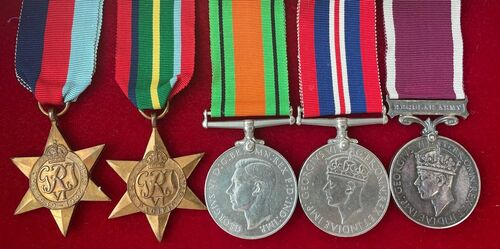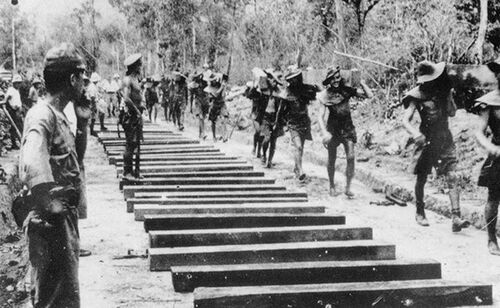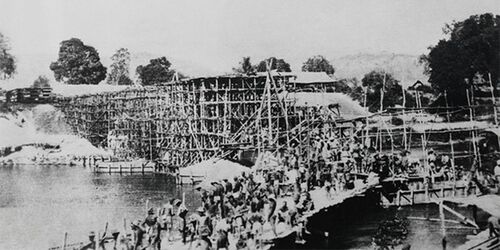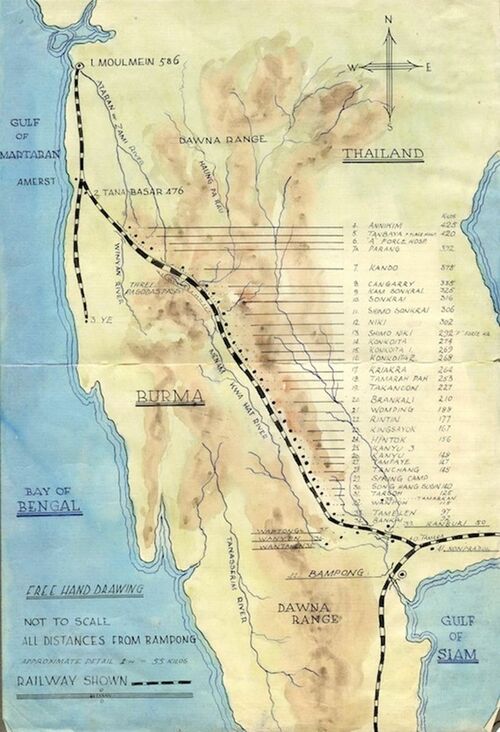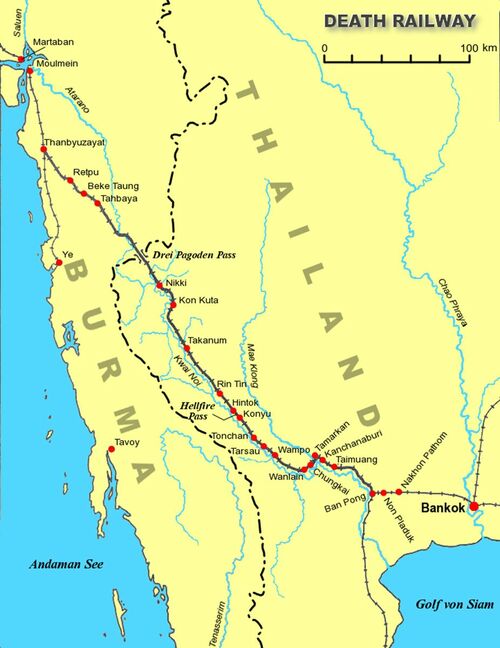Auction: 23112 - Orders, Decorations and Medals - e-Auction
Lot: 629
The campaign group of five awarded to Warrant Officer Class 1 P. Brown, 9th Coastal Regiment, Royal Artillery who was taken Prisoner of War on 15 February 1942 following the Fall of Singapore
As a consequence, he would have endured the abysmal treatment meted out by his captors in the construction of the bridge and notorious Burma-Siam Railway
1939-45 Star; Pacific Star; Defence and War Medals 1939-45; Army L.S. & G.C., G.VI.R., 2nd issue, Regular Army (1423838 W.O.CL.II. P. Brown. R.A.), very fine (5)
Peter Brown born in Dundee, Scotland on 14 April 1905 was a ploughman when he enlisted in the Royal Artillery in August 1922. He served during the Second World War as a Warrant Officer Class 1 in the Singapore Garrison, 9th Coastal Regiment Royal Artillery (consisting of 7th, 22nd and 32nd Batteries). On 12 February 1942 the Coastal Batteries were destroyed and at 01.30hrs on 13 February 1942 the Garrison was marched to the Indian Recreation Ground in Singapore where the unit was formed into an Infantry Battalion and used as support troops. At 16.30hrs on 15 February 1942 the Regiment ceased to exist as a fighting unit and was disbanded, all the men becoming Prisoners of War of the Japanese.
Initially interned at Changi Camp in Singapore, Brown was moved to Tonchan in Thailand in October 1942. In his subsequent years of captivity Brown was incarcerated at an assortment of camps along the infamous Burma-Thai railway. On 4 June 1945 some 800 prisoners were made to march in adverse conditions from Nakom Nai camp to a new smaller labour camp in Northern Thailand, a distance of 600 kilometres. Brown was in charge of 200 of the Prisoners on the forced march and a detailed list of those men is included in his MI9 questionnaire.
Alfred E (Pop) Nellis WO11 RQMS 9 Coast Regiment Royal Artillery records in his book Freeing the demons published in 2017, the background to the march:
'In February 1945, all the Officers, irrespective of their Group or sickness were separated from the men and concentrated at Khan-Chan-Buri. Senior Warrant Officers took charge in place of the Officers at other Camps. At all the Camps, instead of the men being concentrated in large numbers, parties were detailed in groups of 500 and sent to various smaller Camps, up the river, etc., or kept on the move doing odd jobs here and everywhere. The idea being so as not to have large numbers of P.O.W's in one place. Therefore, outside the Base Camps, conditions again became vile, deaths mounting through the lack of food and medical supplies.'
Sold together with copied research including his MI9 questionnaire.
Subject to 20% VAT on Buyer’s Premium. For more information please view Terms and Conditions for Buyers.
Sold for
£220
Starting price
£130

